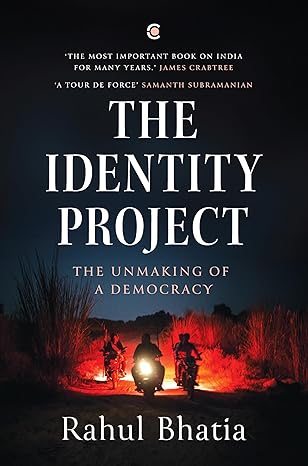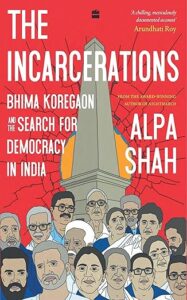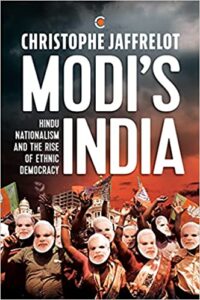The Identity Project by Rahul Bhatia traces the process of consolidation of Indian citizens by their Hindu Identity. The author reflects on how people around him started to change and began to assert their Hindu Identity more forcefully, accompanied by a visible disdain for Muslims. The change was evident and in your face after 2014. It felt as though familiar individuals had assumed a new, more aggressive persona. People once known for their rationality and openness were now increasingly rigid, intolerant, and dismissive of differing viewpoints, a change that signaled a troubling societal shift.
The author guides readers through the passage of the Citizenship Amendment Act (CAA) in 2019 and the wave of violence that followed its enactment. The Delhi riots of early 2020—among the worst communal clashes in recent years—served as a grim confirmation of the deepening religious divide in India. Through this narrative, the author argues that the CAA represents yet another step in the project of consolidating Hindu identity, further entrenching communal divisions and alienating Indian citizens along religious lines. The detailed account of the aftermath of the Delhi 2020 riots is deeply unsettling, making the actions of police and the judiciary reinforce the narrative of Hindu supremacy. Rahul delves into the legal battles that the victims have to go through and how the legal system has failed the victims.
The Identity Project delves into the historical roots of Hindu identity consolidation, tracing its evolution back to the mid-nineteenth century. The book explores the roles played by figures like Dayanand Saraswati and organizations such as the Arya Samaj, Hindu Mahasabha, and, most notably, the Rashtriya Swayamsevak Sangh (RSS). It examines how these groups laid the groundwork for a unified Hindu identity with the ultimate goal of establishing a Hindu Rashtra. The author draws attention to the ideological influences of fascism and Nazism on the RSS and its founders—particularly their admiration for leaders like Hitler and Mussolini. In this vision, Muslims were to be relegated to second-class citizenship, much like Jews in Nazi Germany. The book argues that these authoritarian roots continue to shape contemporary politics, with the legacy of Hindutva ideology increasingly visible in the present socio-political landscape.
In the pursuit of assigning a unique identity to every Indian citizen, an initiative like Aadhaar was initially proposed but failed to gain momentum. At the time, then Home Minister L.K. Advani championed the idea, citing the need to track illegal migrants. However, the underlying objective appeared to be broader—gaining centralized access to the personal data of all citizens as a means of control. The project was later rebranded as Aadhaar under the Congress-led government, but it was during Prime Minister Narendra Modi’s tenure that it saw aggressive implementation. Modi recognized the vast potential of harnessing the data of over a billion people, not just for governance, but for unprecedented surveillance and control.
The Identity Project is a thoroughly researched and information-rich work that offers deep insights into contemporary India. The chapters on Aadhaar are particularly detailed and informative, though at times they may feel exhaustive. Similarly, the sections tracing the history of Hindu identity consolidation are comprehensive but lengthy, which might cause some readers to lose engagement. Despite these challenges, the book remains a valuable and important read for those trying to understand the socio-political shifts in India, backed up by meticulous research and critical analysis.
About The Author
Rahul Bhatia is an award-winning writer and journalist based in Mumbai. His work has been published in the New Yorker, Guardian Long Reads and other publications. He won the True Story Award in 2024, and was a Harvard Radcliffe Institute fellow in 2022-23.


